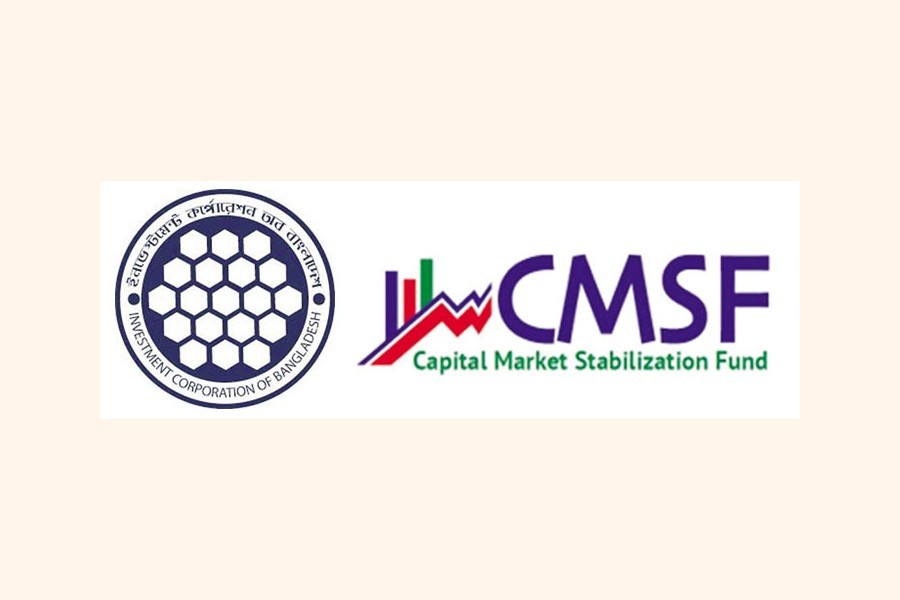Stabilisation Fund set for mandate overhaul for better investor protection
Unnecessary expenditures involving the CMSF's governing body and office spaces irked the securities regulator

Published :
Updated :

Capital Market Stabilisation Fund (CMSF) is going to be transformed into a statutory fund to strengthen its legal status so that the main purpose of ensuring protection of investors' money is well served.
It will not only get a different name but will also be given a different operating framework.
For example, investments of unclaimed dividends into equities may no longer be allowed and listed companies' cash dividends may be distributed through the statutory fund so that issues surrounding tax collection from dividend income and tax waiver can be streamlined.
The proposal came at a recent meeting at the Ministry of Finance when top bosses of the securities regulator and the Financial Institutions Division (FID) presented their arguments for strengthening the legal base of the CMSF before Finance Adviser Dr. Salehuddin Ahmed.
Mr Ahmed gave his consent to the proposed changes.
The Fund's unnecessary management cost and an attempt to transfer investors' funds to the government's exchequer prompted the securities regulator to consider changing its legal status.
The previous commission introduced the CMSF by formulating rules, which came into effect in June 2021, to help revitalise the market through liquidity support and settle investors' claims of undistributed/unsettled dividends.
On receipt of undistributed dividends from the issuer companies, the CMSF has so far settled claims of cash dividends worth Tk 94 million and stock dividends worth Tk 3.05 billion at market prices.
After the ouster of the previous government on August 5 last year, fresh discussions emerged in the new securities commission and the FID on the Fund's role and relevance.
Officials of the FID and the Bangladesh Securities and Exchange Commission (BSEC) were later convinced that the Fund was necessary for the sake of settlement of investors' undistributed dividends that the issuer company had kept with them for years and even decades.
For instance, listed banks are still reluctant to transfer undistributed dividends worth around Tk 40 billion to the CMSF's account.
"A strong legal base [of the Fund] would help realise undistributed dividends from the banks," said an official of the CMSF, preferring anonymity.
Strengthening of legal status
However, unnecessary expenditures involving the CMSF's governing body and office spaces irked the securities regulator, said a senior BSEC official.
After the fall of the previous government last year, a division of the finance ministry proposed transferring investor's money from the account of the CMSF to the government's exchequer.
The BSEC and the FID did not support the proposal on the grounds that it is investors' money that is deposited into the accounts of the CMSF. Successors of investors may demand undistributed dividends at any time and the CMSF should be able to hand over the money.
The previous commission of the securities regulator introduced the CMSF, exercising powers conferred by the Securities and Exchange Ordinance, 1969.
After the formation of the Fund, there was an attempt to disburse loans among market stakeholders from the collection of undistributed dividends. The attempt was foiled when the central bank raised questions about the legitimacy of the move.
Recently, the CMSF wanted to open an FC (foreign currency) account with Modhumoti Bank to send undistributed dividends to non-resident Bangladeshis (NRBs) who had invested in stocks from abroad.
The Bangladesh Bank asked Modhumoti Bank to halt the process of account opening, pointing to the weak legal status of the CMSF.
This is the backdrop to the BSEC and the ministry accelerating a process to change the Fund's legal status through an ordinance signed by the president. The ordinance will specify mandatory areas of the Fund's operations to the benefit of investors.
Proposed restrictions
The CMSF had injected some cash into equities through the Investment Corporation of Bangladesh (ICB). It also sponsored a mutual fund, ICB AMCL CMSF Golden Jubilee Mutual Fund.
Such investments drew criticism for the intended regulatory influence on the market.
Under the new legal framework, CMSF officials said, no further investments and sponsorship with investors' money would be allowed.
The Fund also has deposits in a private commercial bank.
BSEC officials said the Fund should not have dealings with banks other than state-run commercial lenders for the sake of security.
Distribution of cash dividends
The CMSF wants to be at the centre of cash dividend distribution to reduce the hassle to avail of tax waiver.
Presently, shareholders of listed companies are required to collect separate tax certification from separate companies.
The companies offer them tax certification on deduction of 15 per cent tax from the dividend income of the shareholders having TIN (tax identification number) and the tax rate is 20 per cent for those having no TIN.
Shareholders submit those tax certifications with tax returns to the revenue board to avail of a waiver up to Tk 50,000 on dividend income.
In many cases, the companies' tax certifications do not match online submissions and many investors do not feel encouraged to collect a number of tax certifications for the low incentive.
If the CMSF takes the responsibility to distribute dividends centrally, investors will get a single challan against the aggregate amount of dividends received.
Wasi Azam, head of operations at the CMSF, said the proposal of dividend distribution through the CMSF would be implemented after scrutiny by the securities regulator and the revenue board.
mufazal.fe@gmail.com


 For all latest news, follow The Financial Express Google News channel.
For all latest news, follow The Financial Express Google News channel.